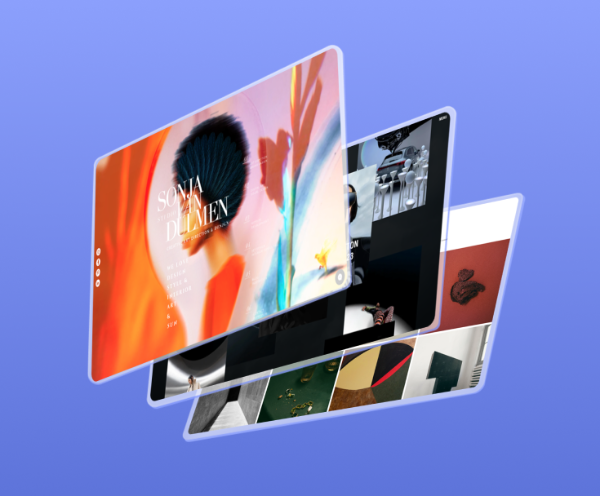Getting Started with Courses on Web Design
How to Courses on Web Design
Courses on Web Design
In today’s digital age, having a strong online presence is essential for businesses of all sizes. One of the best ways to establish your brand online is by creating a professional website that showcases your products or services. However, building a website from scratch can be a daunting task, especially for those with little to no technical skills. That’s where website builders come in.

A Beginner’s Guide to Courses on Web Design
Courses on Web Design
To ensure that your website meets accessibility standards, it is important to use a website accessibility checker. These tools help you identify areas on your website that may not be accessible to all users, allowing you to make the necessary changes to improve your site’s accessibility.
One popular website accessibility checker is the Web Content Accessibility Guidelines (WCAG) checker. WCAG is a set of guidelines for making web content more accessible to people with disabilities. These guidelines are broken down into four principles: perceivable, operable, understandable, and robust. The WCAG checker evaluates your website based on these principles and provides you with a list of issues that need to be addressed to improve accessibility.
Another website accessibility checker is Axe, which is a free open-source tool developed by Deque Systems. Axe scans your website for accessibility issues and provides detailed reports on areas that need improvement. The tool is easy to use and provides actionable recommendations for improving accessibility.
In addition to these tools, there are also browser extensions like Wave and AInspector that allow you to check the accessibility of your website in real-time as you browse. These extensions highlight accessibility issues on your site and provide recommendations for fixing them.
When using a website accessibility checker, it is important to keep in mind that no tool is perfect. While these tools can help identify common accessibility issues, it is also important to conduct manual testing to ensure that your website is truly accessible to all users. Manual testing involves using assistive technologies such as screen readers and keyboard navigation to navigate your site as a person with disabilities would.
It is also important to stay updated on the latest accessibility guidelines and best practices. The web accessibility landscape is constantly evolving, and it is important to stay informed about new developments in the field. By staying informed and regularly testing your website for accessibility, you can ensure that your site is accessible to all users.
In addition to ensuring compliance with accessibility laws and guidelines, improving website accessibility also benefits your business. By making your website more accessible, you can reach a wider audience and improve the user experience for all visitors. This can lead to increased engagement, higher conversion rates, and improved search engine rankings.
Here are some of the top web design trends to watch out for in 2021:
1. Dark Mode:
Dark mode has been a popular trend in web design for the past few years, and it continues to gain momentum in 2021. Dark mode not only looks sleek and modern but also reduces eye strain and improves readability in low-light environments. Many websites now offer a toggle switch that allows users to switch between light and dark modes based on their preference.
2. Neumorphism:
Neumorphism is a design trend that combines elements of skeuomorphism and flat design to create a soft, realistic look. It involves using subtle shadows, highlights, and gradients to make elements appear three-dimensional and tactile. Neumorphic design can create a more immersive and engaging user experience, making websites feel more interactive and intuitive.
3. Minimalism:
Minimalism has been a popular design trend for years, and it continues to be relevant in 2021. Clean and simple designs with plenty of white space help focus users’ attention on key elements and create a sense of calm and balance. Minimalist websites load faster, are easier to navigate, and convey a sense of sophistication and professionalism.
4. Custom Illustrations:
Custom illustrations are a great way to add personality and character to a website. They can help showcase a brand’s unique identity and differentiate it from competitors. Custom illustrations can be used to explain complex concepts, guide users through the website, or simply add a touch of whimsy and creativity to the design.
5. Asymmetric Layouts:
Asymmetric layouts break away from the traditional grid-based designs and create a more dynamic and visually interesting website. They can help draw attention to specific elements, create a sense of movement and flow, and make the design more memorable and engaging. Asymmetric layouts can be challenging to implement but can result in a truly unique and striking website.
6. 3D Elements:
3D elements add depth and dimension to a website, making it more visually appealing and immersive. They can be used to create interactive product showcases, engaging animations, or eye-catching backgrounds. With advancements in CSS and JavaScript, 3D elements are becoming easier to implement and can help create a more memorable and engaging user experience.
7. Bright Colors:
Bright and bold colors are being used more frequently in web design to grab users’ attention and create a strong visual impact. Vibrant colors can help convey brand personality, evoke emotions, and create a sense of energy and excitement. When used strategically, bright colors can help highlight key elements and guide users through the website.
8. Micro-animations:
Micro-animations are small, subtle animations that add interactivity and delight to a website. They can be used to draw attention to important elements, provide feedback to user actions, or create a sense of continuity and flow. Micro-animations can help create a more engaging and intuitive user experience and make the website feel more dynamic and alive.
9. Voice User Interface (VUI):
With the rise of voice assistants like Alexa and Siri, voice user interfaces are becoming more prevalent in web design. VUI allows users to interact with the website using natural language commands, making navigation easier and more intuitive. Integrating VUI into a website can help reach a wider audience, improve accessibility, and offer a more convenient user experience.
10. Accessibility:
Accessibility is an important consideration in web design, ensuring that websites are usable by people of all abilities. In 2021, there is a growing focus on creating accessible websites that adhere to WCAG (Web Content Accessibility Guidelines) standards. This includes features like alt text for images, proper heading structures, keyboard navigation, and color contrast ratios. By designing with accessibility in mind, businesses can reach a larger audience and demonstrate their commitment to inclusivity and diversity.

Courses on Web Design Checklist
Courses on Web Design
In conclusion, website accessibility is a crucial aspect of web development that should not be overlooked. Using a website accessibility checker can help you identify and fix accessibility issues on your site, ensuring that all users can access your content. By staying informed about accessibility guidelines and best practices, and regularly testing your website for accessibility, you can create a more inclusive online experience for all users.


